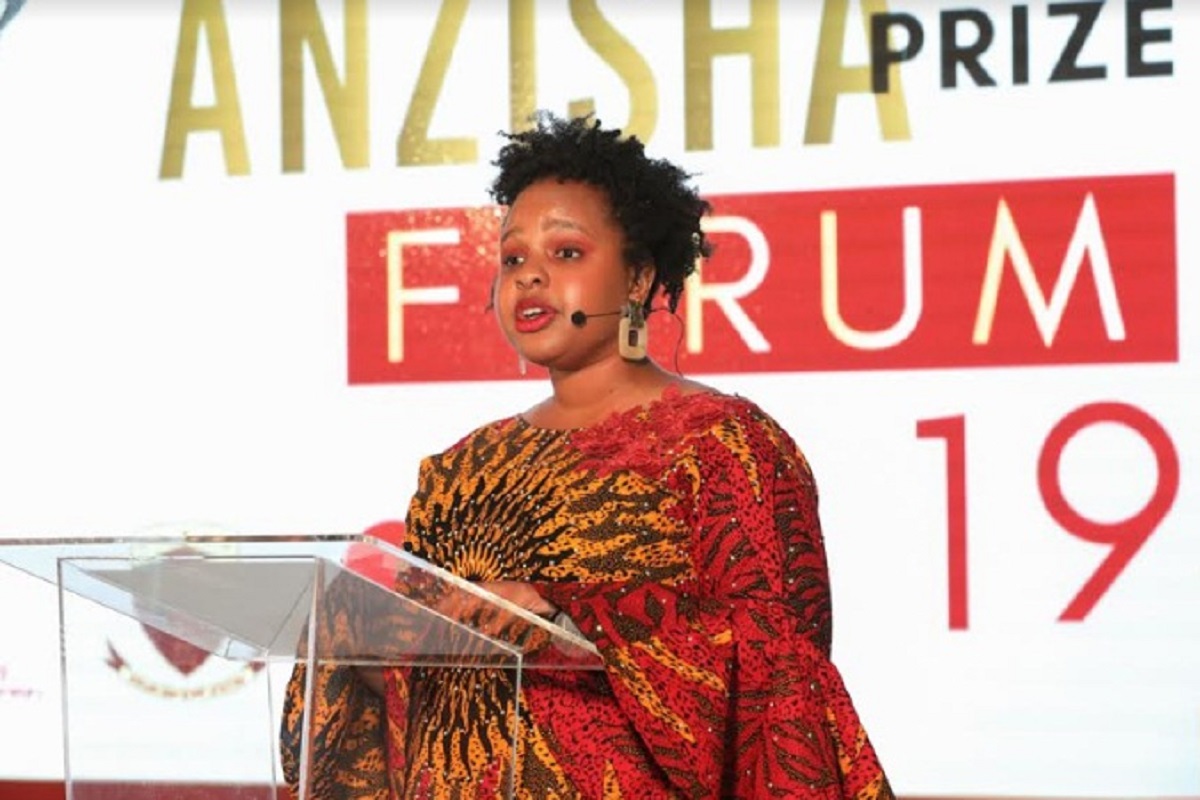Broadcasting
Using Entrepreneurship and Working with the Private Sector, Governments can End the Unemployment Crisis in Africa

By Didi Onwu, Managing Editor: Youth and Investors at the Anzisha Prize
There can be no doubt that the events of the past two years have had a devastating impact on the African economy. In fact, according to the International Labour Organisation’s flagship report, World Employment and Social Outlook Trends 2022, at least 13.3 million jobs and income opportunities were lost as a result of the pandemic. This has only made the severe economic difficulties facing the continent worse.

But even as the effects of the COVID-19 pandemic linger, green shoots are starting to rise up across the continent. Thanks to a growing crop of young, tech-savvy entrepreneurs, as well as rapidly accelerating connectivity rates, Africa’s next chapter could be somewhat brighter than the one just concluded.
But that will only be the case if a collaborative environment that brings together entrepreneurs, corporates, and governments is created.
Building across sectors
If you want a glimpse of how bright that future can be, you need only look at how many young African entrepreneurs are building innovative products and services across a variety of sectors.
Take Farmhut Africa’s efforts in the agricultural sector, for example. Owned by 21-year old entrepreneur Munyaradzi Makosa from Zimbabwe, Farmhut Africa is an AI-powered marketplace connecting farmers to markets that pay fair prices for their produce in the SSA region.
Another entrepreneur doing incredible things in the agricultural space is 22-year-old Tafadzwa Chikwereti from Zimbabwe. He launched eAgro in March 2020 with the sole purpose of creating a platform that fosters resilience and profitability for smallholder farmers using data analytics and machine learning.
In the mobile space, meanwhile, South Africa’s Lipa Payments, created by Thando Hlongwane – an Anzisha Prize Fellow – has the potential to be an emerging unicorn. It aims to bring Africa’s unbanked population and informal businesses into mainstream banking through mobile. The company recently raised an investment of R10 million and is expanding across the continent.
Significantly, all of the businesses mentioned above employ young people and create earning opportunities for others both directly and indirectly through their innovative business models.
Our own research shows that 60% of the businesses owned by young entrepreneurs or Fellows of the Anzisha Prize have created not less than 2 500 work opportunities by starting and scaling up their businesses.
The right environment to thrive
Of course, these entrepreneurs can only do so much, especially if they aren’t given the necessary environment to thrive in. It’s critical that governments do everything they can to provide that environment.
For some countries across the continent, that means a radical change in approach.
African governments have often relied on big business and foreign direct investments to bolster economic growth and job creation. The results of this approach have, at best, been mixed. Instead of relying on big business to spur economic growth and create jobs, African governments need instead to focus efforts and resources on improving the chances of success for small and medium-sized businesses.
Additionally, they should focus on building a culture of entrepreneurship from the ground up amongst children and teenagers. Ultimately, the goal should be to create a generation of job creators rather than just job seekers.
Big business has a role to play in creating that environment too. It is, after all, in its own interest to channel entrepreneurial opportunities toward young people and redirect trade to businesses owned by young people. By integrating these businesses into their supply chains, they help uplift the wider population, who can then spend money on their products and services. Governments can further show their support for this kind of approach by creating incentivising policies that reward organisations which support young entrepreneurs.
Change is imperative
Africa’s young entrepreneurs are building solutions that have the potential to change not just their own countries and the continent but also the world. Given the right environment, they can create numerous jobs along the way too. In a region facing major unemployment struggles (especially among young people), it’s critical that they be allowed to do so.
It’s clear then that governments, big businesses, and other players in the entrepreneurial ecosystem must come together and collaborate to create an environment that fosters and supports as many young entrepreneurs as possible.
Broadcasting
How Flavour’s Uplifted Album Changed the Game: 15 Years of Igbo Pride and Global Hits

Fifteen years ago, something truly special dropped onto the music scene: Flavour N’abania’s second album, Uplifted. This was a first showcase of his talent. With powerful vocals, masterful highlife production, and a deep connection to his cultural roots, Uplifted solidified Flavour’s reputation as a gifted artist.

At the time of its release, Uplifted smashed through borders and cultural divides, all thanks to Flavour’s deep commitment to celebrating his Nigerian roots, especially his Igbo heritage. This powerful connection to his culture has made him a major force, not just in Nigeria, particularly in the East, but also among the Igbo community dotted around the world.
The sheer success of Flavour’s cultural expression is highlighted by Spotify data from Uplifted and his other tracks. Even though his songs are deeply rooted in his culture and often sung in Igbo, they’re getting massive plays all over the globe.
Uplifted itself has stayed a big deal on streaming platforms, with its standout tracks racking up some serious numbers. Among the most-streamed hits from the Uplifted album are Ashawo Remix, Adamma, and Oyi (I dey Catch Cold). These tracks, along with other timeless fan favourites like Time To Party, Nwa Baby (Ashawo Remix), and Game Changer (Dike) have all contributed significantly to Flavour’s overall streaming success, proving their lasting appeal. Reflecting on the album’s anniversary during an exclusive chat with Spotify, Flavour revealed that for him, “Adamma” truly captured the essence of Flavour from the Uplifted album era.”
From the heart of Nigeria to global playlists: Flavour’s universal pull
Flavour’s music really does have a universal pull. His songs have popped up in over 2 million user-made playlists, which shows just how much people are connecting with and sharing his tunes. And get this: in the last three years, from 2022 to 2024, Flavour’s music has seen a growth in streams, a total stream increase of 134% globally, and a 573% increase across Sub-Saharan Africa.
While 51% of his total audience is in Nigeria, his influence stretches far and wide with the USA, UK, Canada, South Africa, and France all among his top listening countries. That’s a truly global footprint, reaching across Africa, Europe, and America.
Leading Flavour’s listenership in Nigeria is a strong showing from Lagos, accounting for 38% of his Nigerian audience. The Federal Capital Territory (FCT) and Rivers State also follow closely, making up 22% and 16% respectively, together claiming 76% of his Nigerian audience. He also enjoys love in the east as two Eastern Nigerian cities, Enugu and Onitsha, break into his global top 10. Big international cities like Greater London, Johannesburg, and New York City feature prominently too. This wide geographical spread shows how his music crosses all sorts of borders.
Who’s listening? A look at Flavour’s fanbase
Flavour’s audience is diverse with Gen Zs (18-24 year olds) as his biggest fans globally and across Sub-Saharan Africa. This strong youth appeal is vital for his long-term success. While his music celebrates women, men form the majority of his listeners globally (57%) and in Sub-Saharan Africa (63%).
The lasting success of Uplifted highlights how digital streaming has completely changed the music industry. Platforms like Spotify have given artists like Flavour ways to connect with fans everywhere. These days, streaming data gives us a clear, numbers-based look at an artist’s reach, showing that Flavour’s cultural stories, delivered in fluent Igbo, truly resonate far beyond Nigeria’s borders.
Flavour’s strong link to his Igbo roots, seen in his music, has driven his global success, acting as a cultural bridge for Nigerian traditions. The ongoing popularity of Uplifted and his other songs on streaming platforms proves that genuine cultural expression, mixed with great artistry, ensures lasting success today. As Uplifted hits 15 years, it showcases the power of culture worldwide.
Broadcasting
Nigeria Week Ahead: CBN decision, ECB and USD in focus

By Lukman Otunuga, Senior Market Analyst, FXTM
This will be a week defined by high-impact events and corporate earnings from the largest companies in the world.

Nigeria’s central bank is expected to hold interest rates on Tuesday.
This decision is likely based on still stubbornly high inflation despite price pressures easing in recent months. Inflation slowed to 22.2% year-on-year in June, its third consecutive decline. A CBN rate cut could be on the cards in H2, but this will be on the back of persistently falling price pressures.
Looking at the NGX All Share Index, it has gained almost 10% month-to-date – pushing 2025 gains to nearly 30%. This means the NGX is currently outperforming the S&P500 and Nasdaq100 who have gained roughly 7% and 11% this year respectively. The Naira spot has held its ground against the USD this year after depreciating almost 70% in 2024.
Outside of Nigeria, earnings season is in full swing with US banks reporting strong results last week. Now the spotlight shines on big tech with Alphabet and Tesla reporting on Wednesday.
Alphabet shares gained 14% in Q2 amid strong AI product demand and growth in the cloud business. However, bulls may need a fresh catalyst to push Alphabet’s year-to-date gains out of the red. Tesla is down almost 20% year-to-date and could extend losses if its latest quarterly results are below market expectations
On the data front, key releases from Europe, the United Kingdom, Japan, and the United States may influence global sentiment.
But the main event for FX markets could be the European Central Bank decision on Thursday. No changes are expected to interest rates, but any clues offered on future moves could spark fresh volatility. Traders are currently pricing in a less than 50% probability that the ECB cuts rates by September
Speaking of FX, the dollar has weakened across the board with the DXY tumbling toward 97.70. This weakness could be based on mounting pressure from Trump to cut US rates and caution ahead of the tariff deadline on August 1st.
Note: Nigeria faces a 14% reciprocal tariff on its goods imported into the U.S, effective from August 1st.
Broadcasting
Big Brother Naija Season 10 to Premiere July 26 with Record ₦150m Grand Prize

MultiChoice Nigeria, today announced the highly anticipated return of Africa’s biggest reality television show, Big Brother Naija, for its landmark 10th season. Set to premiere over two nights on Saturday, July 26 and Sunday, July 27, 2025, the new season promises 10 weeks of captivating drama, strategic gameplay, and unparalleled entertainment, culminating in the grand finale on Sunday, October 5, 2025.

The audition process for this milestone season was meticulously designed to unearth the most engaging and dynamic personalities from across Nigeria. Audition registrations were held from May 3rd to May 7th, 2025, and saw an overwhelming response, followed by rigorous in-person auditions conducted in Lagos, Abuja, and Enugu from May 16th to May 18th, 2025.
Speaking on the upcoming season, Busola Tejumola, Executive Head, General Entertainment, MultiChoice Group, expressed her excitement: “Today we are not just announcing another season, we are celebrating a legacy.”
While the official theme for Season 10 will be unveiled on the premiere night, viewers can anticipate a fresh wave of excitement. The beloved Ebuka Obi-Uchendu is returning as host, guiding viewers through every twist and turn of the season. This 10th season also has the highest prize at stake – valued at a whopping N150million.
Fans can catch the premier live on July 26 and 27 exclusively on Africa Magic Showcase, Family and Showmax at 7 PM WAT. The Sunday live eviction shows will also air exclusively on these channels. The 24/7 live stream will be available on DStv Channel 198, GOtv Channel 49, and on Showmax.
“BBNaija has become more than just a television show; it is a living, breathing cultural force. It has given voice to a new generation of talent, creatives, entertainers, and the influencer community, and it has refined what homegrown entertainment can achieve when it is done at scale with intention and ambition,” added Tejumola.
With a two-night opening live show for Big Brother Naija Season 10, the season is poised to build upon the legacy of its predecessors, with fans expecting a more dynamic and entertaining experience. Still speaking on what the season holds Dr. Tejumola said “Today we are not just announcing another season, we are celebrating a legacy. From the very first time we introduced Big Brother Naija in 2017, we had an inkling that we had something special. What we couldn’t fully imagine then is how deeply the show would resonate not only in Nigeria but across Africa and in the global diaspora, where our stories continue to connect people to home.”
This milestone season for the iconic show is not without the usual lineup of sponsors. The gold sponsor for the 10th season of the show is Guinness Nigeria. Other sponsors include Smirnoff, Gordons, HFM, Pepsi, Aquafina, Supakomando, Tolaram Group, Bet King, Golden Penny Foods, Haier Thermocool, Checkers custard, and Innoson Motors, among others.
Viewers can catch all the live action and special broadcasts on DStv Channel 198, GOtv Channel 49, and Showmax. The live Sunday eviction shows will air exclusively on Africa Magic Showcase (DStv Channel 151, GOtv Channel 8), Africa Magic Family (DStv Channel 154, GOtv Channel 7) and on Showmax.
DStv and GOtv subscribers can also watch the show on the go using the DStv and GOtv Stream apps available on the Google Play Store and IOS App Store.

 E-Financial2 days ago
E-Financial2 days agoUBA’s LEO Becomes Africa’s First Chatbot to Enable Cross-Border Payments

 News2 days ago
News2 days agoUN Appoints Sa’id, Nigerian to Nuclear Panel

 E-Business2 days ago
E-Business2 days agoNIMC Enrolls 122m for NIN, Cuts Extortion by 40 Percent

 Telecom1 day ago
Telecom1 day agoMTN Nigeria Rewards 1,500+ Winners with ₦290m in Mega Billion Promo

 Telecom2 days ago
Telecom2 days agoMTN Urges Nigerian to Regards Telecom Infrastructure as National Assets

 General News2 days ago
General News2 days agoAppeal Court Nullifies Registration of ‘KPMG Professional Services’

 E-Financial1 day ago
E-Financial1 day agoNaira Slides Again, Hits ₦1,532.34/$ Despite CBN’s Dollar Push

 Telecom2 days ago
Telecom2 days agoBitget Launches $6M Global Crypto Trading Contest with New Competitive Segments
















